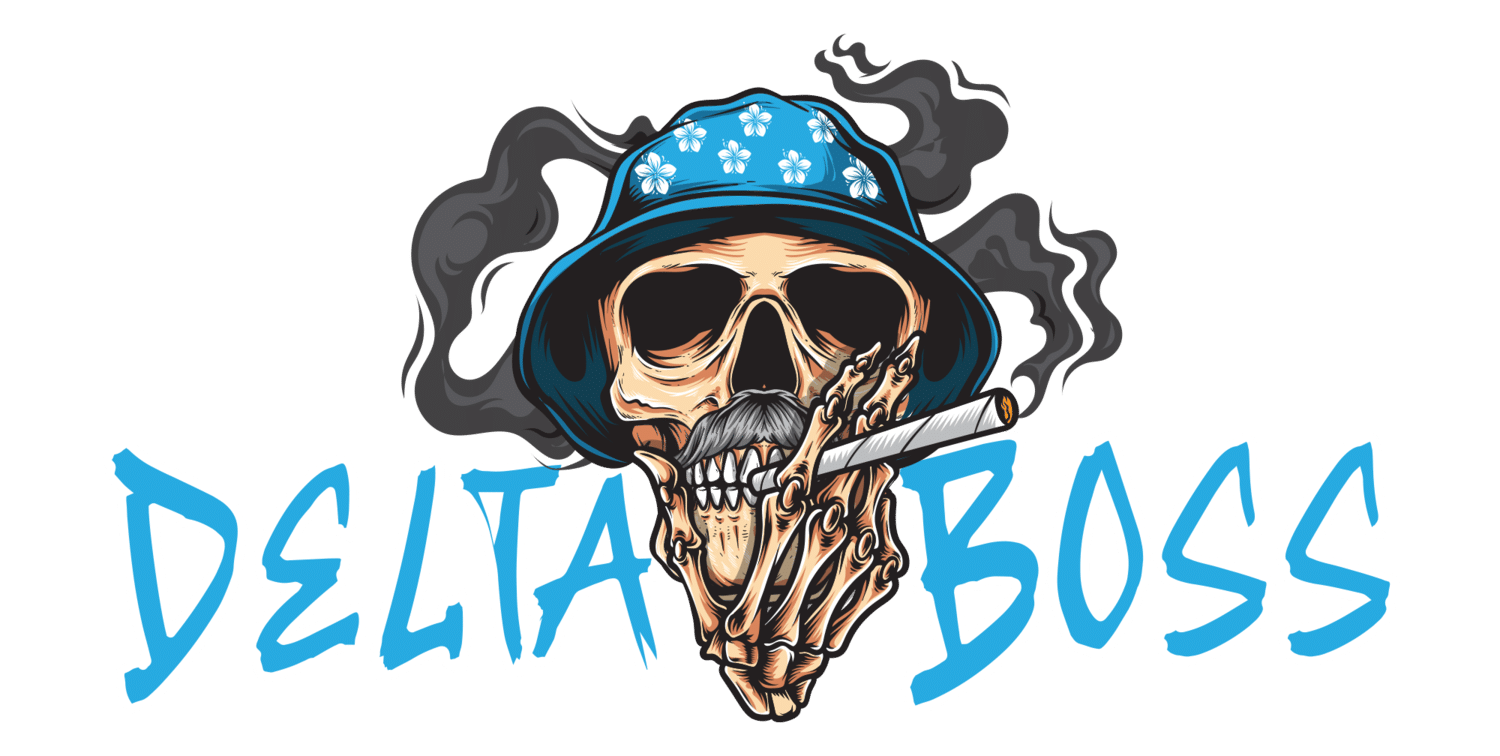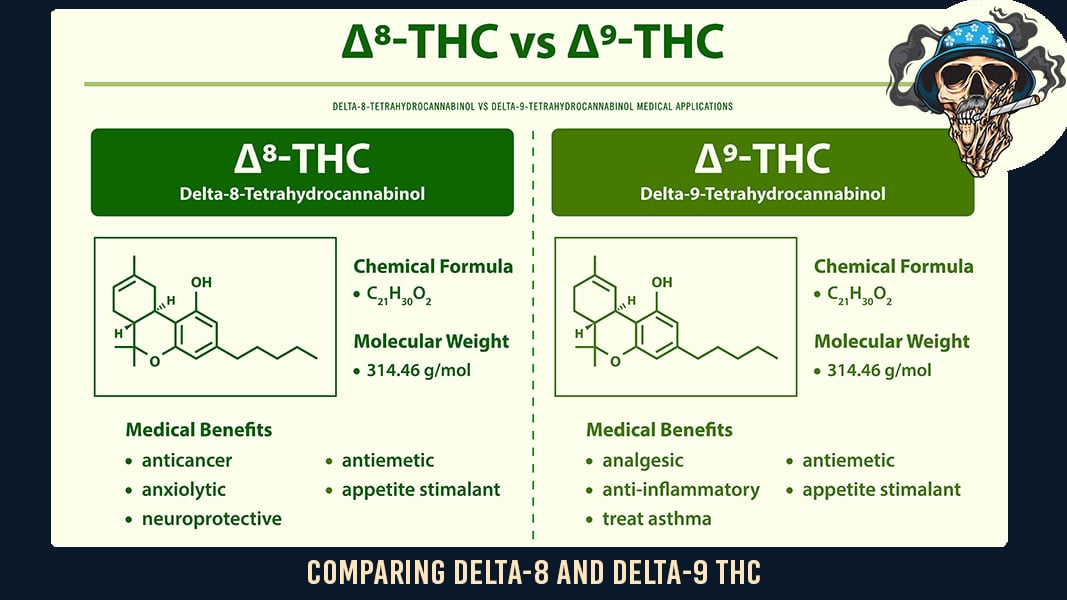Delta-8 THC Gummies vs Other Delta-9 THC Products
How Delta-8 THC Gummies Compare to Delta-9 THC Products
Welcome to the intriguing world of THC, where the subtle differences between compounds can have significant effects on their use, legality, and consumer preference. Today, we’re delving into the distinct worlds of Delta-8 and Delta-9 THC. While structurally similar, these compounds offer diverse experiences and are subject to varying legal landscapes. This guide aims to demystify these differences and provide a comprehensive overview of their effects, legal status, and availability. Whether you’re a seasoned cannabis aficionado or new to the scene, understanding these nuances will help you make more informed decisions about which type of THC might suit your needs best. Join us as we explore what sets these compounds apart and how they fit into the broader context of cannabis use today.
Understanding Delta-8 and Delta-9 THC
Delta-8 THC and Delta-9 THC, though closely related chemically, exhibit notable differences that significantly affect their application and perception in the market. These cannabinoids both engage with the endocannabinoid system in the body, yet the subtle shift in their molecular structure leads to distinct disparities in their psychoactive effects, legal implications, and overall user experiences. This slight chemical variance mainly involves the position of a double bond along the carbon chain, which might seem minor but results in Delta-8 generally producing milder psychoactive effects compared to the more potent and psychoactively intense Delta-9 THC. This difference not only influences user preference but also impacts the legal status of each compound, making Delta-8 THC a subject of growing interest due to its legal ambiguity in various regions.
The Chemical Difference
At the molecular level, the difference between Delta-8 and Delta-9 THC is small but significant, centered around the position of a double bond in their structures. Delta-8 THC has this critical double bond on the eighth carbon in its chain, while Delta-9 THC has a double bond on the ninth carbon. This slight alteration in structure fundamentally changes how each compound interacts with the nervous system, affecting their pharmacological effects. For instance, Delta-9 THC’s placement allows it to bind more effectively with CB1 receptors in the brain, resulting in more pronounced psychoactive effects.
In contrast, the bond placement in Delta-8 THC leads to a slightly less productive interaction, which is why its effects are typically described as less intense and more stable, providing a smoother experience for users without the high levels of anxiety and paranoia sometimes associated with Delta-9 THC. This distinction is crucial not only for users who seek different experiences but also influences legal regulations and market availability of these compounds.
Effects on the Body
Delta-9 THC:
- Potency and Psychoactivity: Delta-9 THC is renowned for its significant psychoactive properties, making it the most potent form of THC available in the cannabis plant. This compound is primarily responsible for the traditional ‘high’ associated with cannabis use, characterized by an elevated mood and altered sensory perceptions. The intensity of its effects can vary among individuals, with some experiencing profound changes in visual and auditory perception, while others may encounter heightened anxiety or paranoia. Such strong psychoactive effects make Delta-9 THC a central focus for both recreational users seeking intense experiences and researchers studying its therapeutic potentials and psychological impacts.
Delta-8 THC:
- Milder High: Delta-8 THC is celebrated for providing a milder, more manageable psychoactive experience compared to its more potent counterpart, Delta-9 THC. Users often report that Delta-8 THC facilitates a clearer, more focused high that enhances concentration and reduces the likelihood of anxiety, which Delta-9 THC sometimes triggers. The overall effects of Delta-8 are characterized by a gentle elevation of mood and a soothing calmness that doesn’t overpower the senses or lead to significant mental cloudiness. This makes it a preferred choice for those seeking the therapeutic benefits of THC without the overwhelming euphoria and psychoactive intensity commonly associated with Delta-9 THC.
Legal Status and Availability
Delta-9 THC:
- Regulation:Delta-9 THC faces a complex legal landscape in the United States. It is classified as a Schedule I drug under federal law, which categorizes it among substances with a high potential for abuse and no accepted medical use. However, the state-level legal status of Delta-9 THC varies widely; it is legal for medicinal and recreational use in several states. This discrepancy between federal and state laws creates a complicated regulatory environment, confusing consumers, businesses, and law enforcement agencies trying to navigate the varying legalities across different jurisdictions.
Delta-8 THC:
- Legal Loopholes: Delta-8 THC has gained considerable attention and popularity due, in part, to its legal gray area. It is often synthesized from CBD derived from federally legal hemp, exploiting a legal loophole that allows its sale in many states where traditional Delta-9 THC remains prohibited. However, this legal ambiguity is catching the eye of state regulators and the DEA, leading to a rapidly changing enforcement landscape and state-level legislation. This evolving situation necessitates vigilance from consumers and manufacturers alike to navigate the complexities of Delta-8 THC’s legal status.
Consumer Preferences and Safety
Choosing between Delta-8 and Delta-9 THC often depends on personal preferences and the desired effects. Those seeking a strong, traditional THC experience might prefer Delta-9 products. In contrast, those looking for a gentler introduction to THC or a mid-day relaxation aid might find Delta-8 more appealing.
Safety Concerns:
- Quality Control: Safety and quality control are paramount concerns in the unregulated Delta-8 THC market, which often lacks consistency in product safety and labeling. At The Delta Boss, we prioritize stringent quality control measures to ensure each batch of our products meets high safety standards. We source our Delta-8 THC from reputable suppliers and conduct thorough testing to prevent contaminants and guarantee accurate labeling. This careful approach not only upholds our commitment to safety but also assures our customers they are receiving the highest quality products available.
As the cannabis industry continues to evolve, understanding the subtle differences between compounds like Delta-8 and Delta-9 THC becomes crucial. Whether you prefer the robust impact of Delta-9 THC or the gentler touch of Delta-8, both cannabinoids offer unique benefits and experiences. Always consider your needs, the legal landscape, and safety when choosing your THC products.


